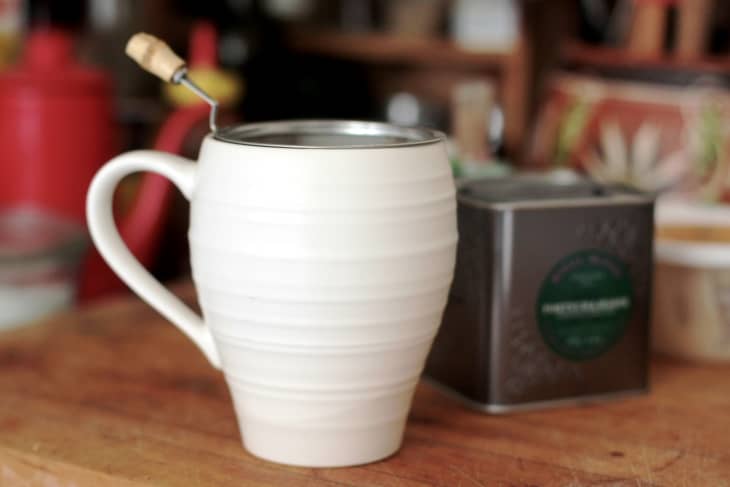What’s Really in That Delicious Cup of Tea You’re Sipping Right Now?
I’m a big tea drinker and so when friends shared a post from Food Babe on what’s really in the tea that we drink, I was very interested. I took a look at the post and according to Food Babe and her sources, depending on the brand, there might be a lot of chemicals and pesticides not only in tea, but in the tea bags as well. Have you read about this? Do you pay attention to the ingredients in your tea?
Food Babe took a closer look at the back of those tea boxes and canisters and found that even brands that appear to be high-end aren’t always using the best ingredients. Sure, she found artificial and ‘natural’ flavors in many low-end tea brands such as Trader Joe’s and Lipton but she also found the same ingredients in teas from Teavana and Tea Forte as well.
Even more alarming are the pesticides — many of which are banned in the US — that are found in Celestial Seasonings and Wellness teas, and the chemicals used to process the paper used in tea bags. From Food Babe’s Do You Know What’s Really in Your Tea? post:
Many paper tea bags are treated with epichlorohydrin, a compound mainly used in the production of epoxy resins. Considered a potential carcinogen by the National Institute for Occupational Safety and Health2 (NIOSH), epichlorohydrin is also used as a pesticide. When epichlorohydrin comes in contact with water, it hydrolyzes to 3-MCPD, which has been shown to cause cancer in animals. It has also been implicated in infertility (it has a spermatoxic effect in male rats) and suppressed immune function.
Also, according to Food Babe, those fancy ‘silk’ mesh bags aren’t any better if you are concerned about plastics leaching into your hot tea. And that’s where this issue really comes home for me: tea is basically an extraction process so it is very important that I’m not encouraging a lot of unwanted chemicals to seep out into my innocent, highly anticipated morning cuppa.
I usually drink an organic loose leaf black tea these days, so the issues raised by Food Babe only confirm my choice.
Are you a die-hard tea drinker like me? Do these issues of flavorings, GMOs, pesticides, and chemicals matter to you? What do you do to avoid unwanted chemicals in your brew?
Read the whole post → Do You Know What’s Really in Your Tea? at Food Babe
(Image: Dana Velden)
